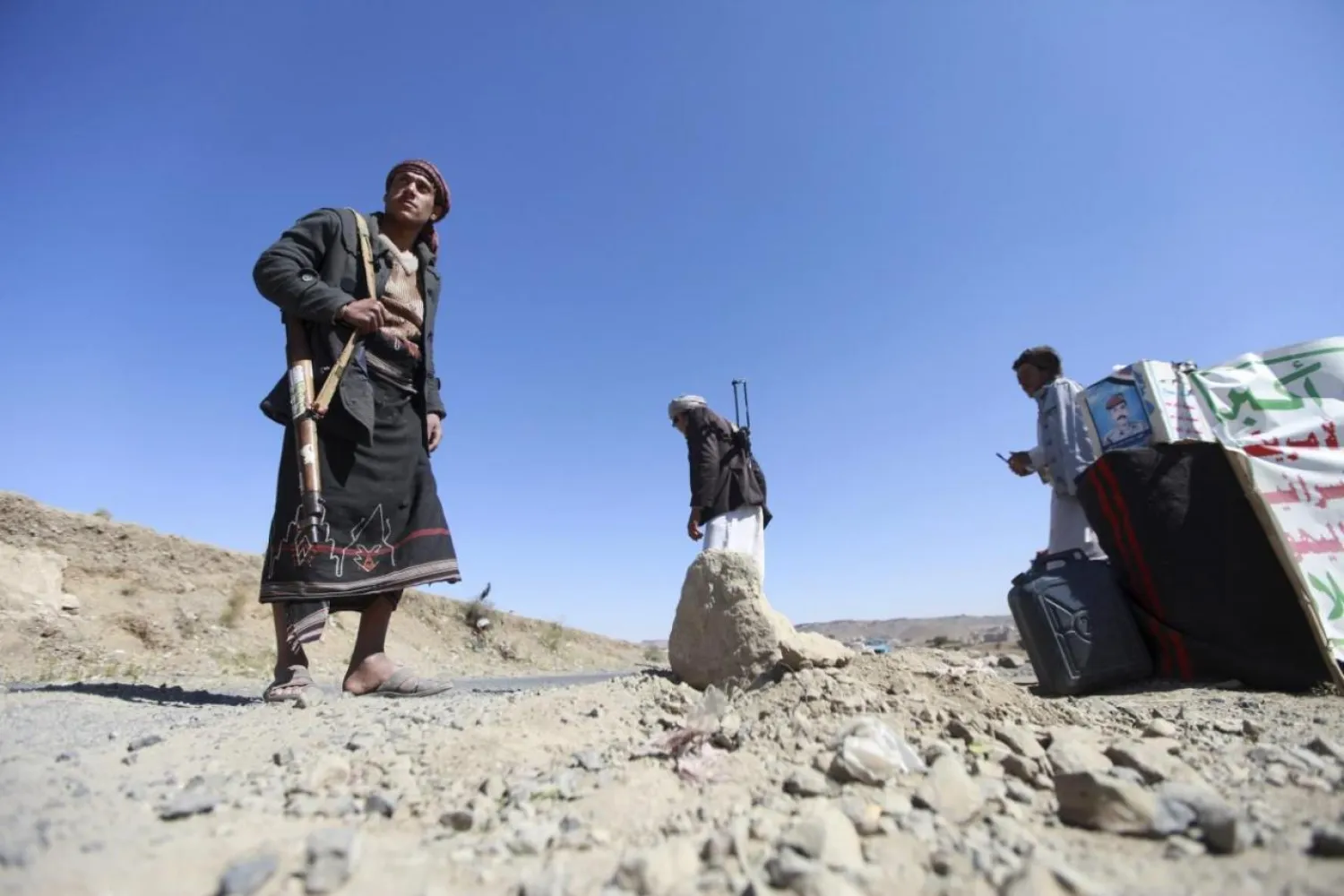“Houthi commitments”. Such a miracle, were it to happen, would be key to resolving the Yemeni crisis. This is a conclusion reached by analysts and diplomats whom Asharq Al-Awsat approached over the challenges facing peace in the country as it gears up for a new round of consultations in Sweden on November 29.
They explained that the Iran-backed Houthis wanted peace more than any other side in Yemen, while taking into account that their backer was busy contending with tough re-imposed US sanctions. They also noted the militias’ mounting losses on the field and the intensified fighting in the western Hodeidah city. The legitimate forces, backed by the Saudi-led Arab coalition, are only a few kilometers from Hodeidah’s strategic port.
Peace, however, is an alien concept to the Houthis, said Yemeni diplomat and former ambassador Abdul Wahhab Tawwaf.
“The Houthis will not turn to peace because it will signify their demise. Furthermore, should a peace process be implemented, the Houthis will not be accepted in Yemen,” he added.
Moreover, he noted that some sides in Yemen wanted sustainable peace, namely the legitimate government and Arab coalition, while others do not, such as members of the international community that only introduce temporary solutions in Yemen.
These sides are ignoring the main problem in the country, he stressed.
Lack of trust
Former Yemeni foreign minister aide Mustafa Naaman said that the greatest challenge facing peace in Yemen is the lack of trust between all sides.
In addition, and as in all lengthy wars, some sides that benefit from its prolongation have emerged, he told Asharq Al-Awsat.
“If Yemeni powers do not come to their moral and national senses and if they do not acknowledge the humanitarian catastrophe, then I do not believe that any agreement will be successful in ending the war,” he remarked.
End to fighting
Political writer and researcher Al-Baraa Shiban revealed that the first thing the Houthis did during the recent lull in fighting in Hodeidah was arrest the greatest number of civilians.
A severe campaign of arrests is underway in Hodeidah, he added.
“It seems that those demanding an end to the war have forgotten that the residents of Hodeidah and other Houthi-controlled regions are suffering at the hands of the militias,” he continued.
Yemeni political writer Sam al-Ghaberi remarked: “We have entire populations living under Houthi control that are demanding to be saved.”
“We are not calling for the continuation of the war on the military level, but the Houthis must surrender and the state’s control must be restored throughout Yemen,” he demanded.
International interests
Undersecretary of the Ministry of Youth and Sports Hamza al-Kamali said that the international community is primarily focused on the humanitarian file in Yemen.
“The international agencies are making more difficult demands in order to receive funding. They do not want an end to the crisis,” he explained. “They instead want Yemen to remain dependent on aid.”
If the war ends, then so will their livelihood, he said of the agencies.
Restoring the state and ending the Houthi coup will resolve the humanitarian crisis, he stressed.
Shiban, for his part, criticized the international community for only basing the solution on Yemen on the success of negotiations.
“What if they fail?” he asked.
“We should not forget that ending the fighting helps the Houthis regroup, plant mines, recruit children and deepen Yemeni wounds,” he noted.
“This catastrophe will be even greater if the negotiations fail,” he remarked.
“The political solution will be within reach if the Houthis lose their means to fund their military operations,” he stressed instead.
Houthi intransigence
Political writer Hani Mashour described Houthi intransigence as the main obstacle hindering a solution in Yemen.
He spoke of their inability to approach issues from a political angle, adding that the years of war have made them intolerant of others.
The legitimate forces, for their part, are suffering from fragmentation due to partisan disputes that have weakened Yemen on the political and economic levels, he noted.
Kamali said that the legitimate forces may witness differences in positions, but they are united in confronting the Houthis.
Hard work
Adam Baron, of the European Council on Foreign relations, said that the recent weeks have seen intensified diplomatic efforts by western powers, specifically the United States and Britain.
British Foreign Secretary Jeremy Hunt’s success in securing an agreement on evacuating wounded Houthis outside of Sanaa is a product of these efforts, he stated.
The evacuation of the wounded was one of the main “last-minute” demands that the Houthis set as a condition for their participation in the last round of consultations that were held in Geneva in September, he added.
The condition was not met and the militias did not attend the talks, dooming them to fail.
Meeting the Houthi demand now is aimed at supporting the upcoming Sweden consultations, he explained.
















